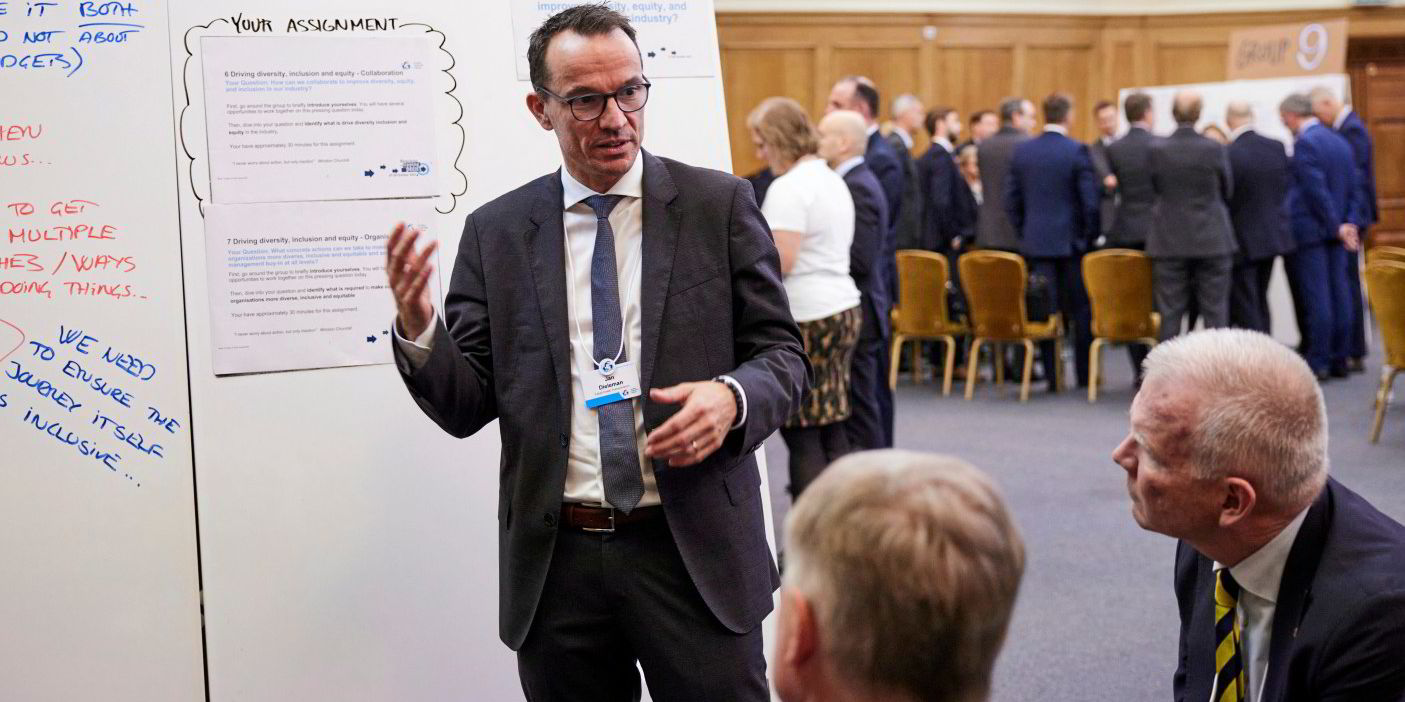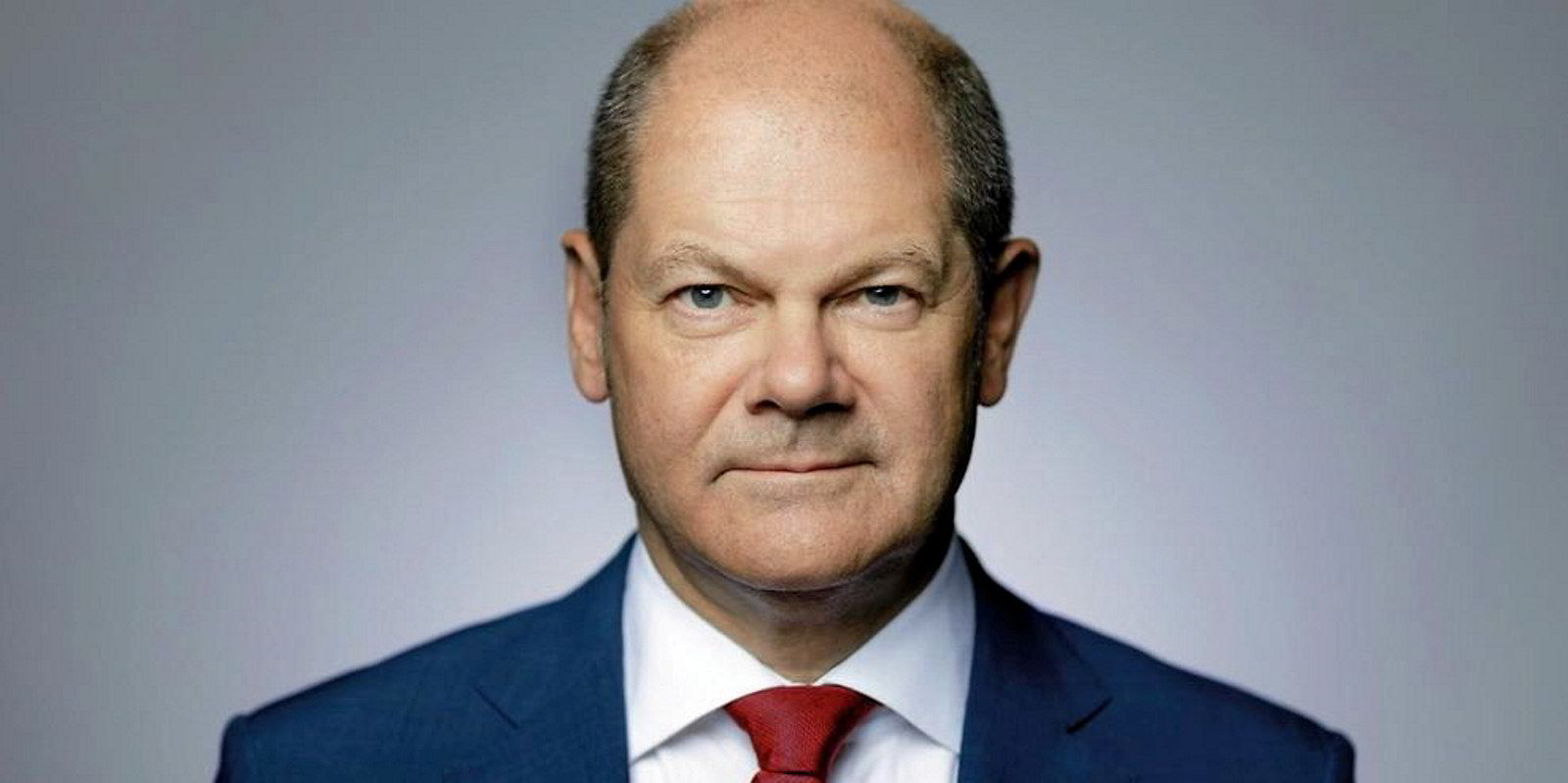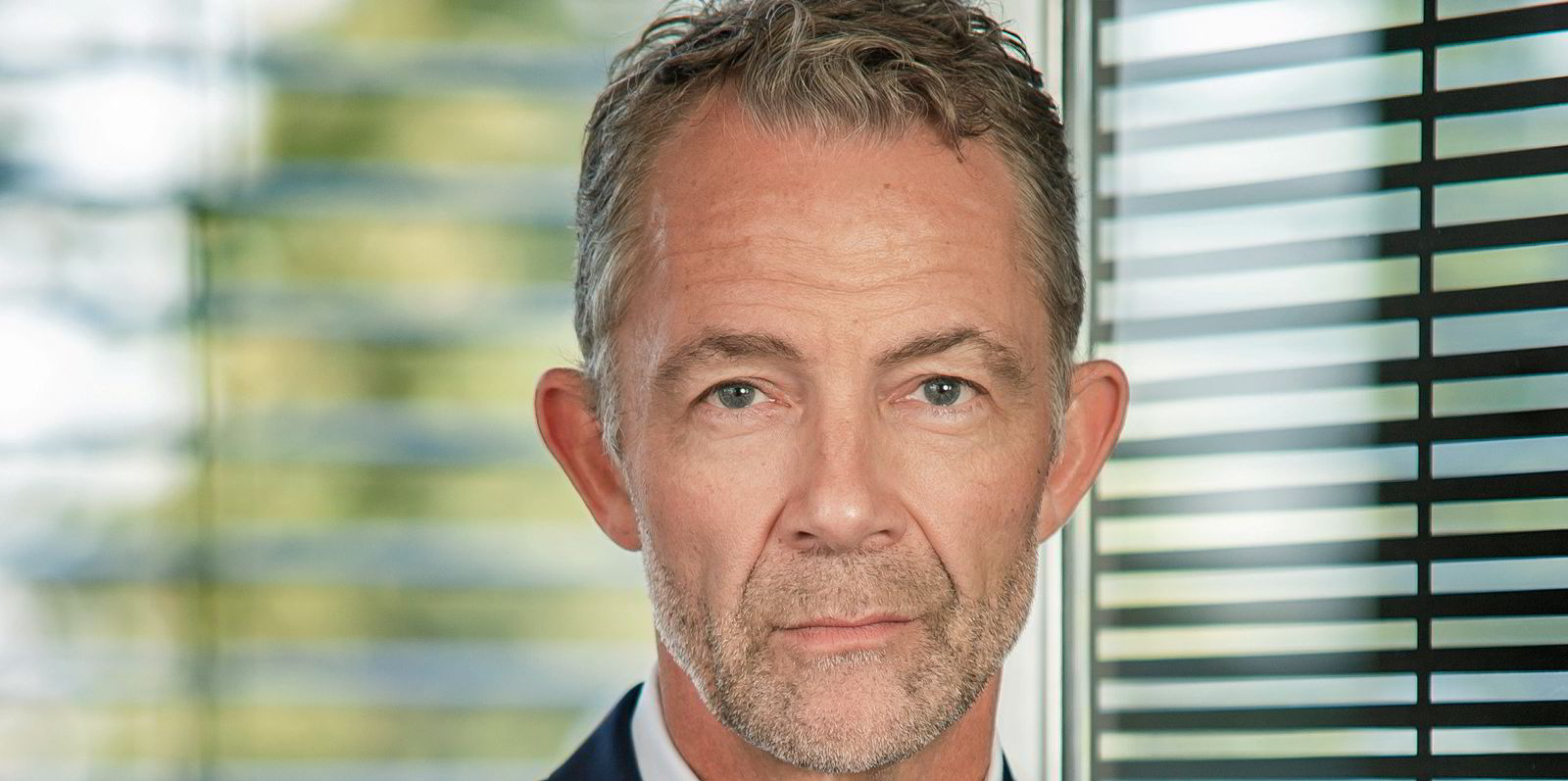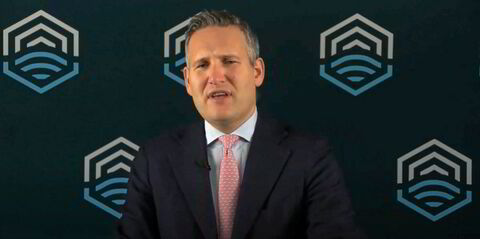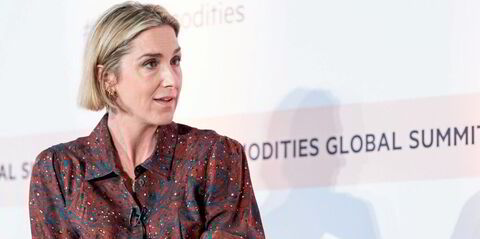The Global Maritime Forum is headed to New York for its annual summit, the main vehicle for its efforts to bring stakeholders together to tackle shipping’s challenges.
The non-profit organisation has a record of turning its discussions into concrete initiatives, so what does it intend to achieve as it prepares its first full-scale summit of the post-pandemic era?
The 22-23 September event is built around responding to two years of dramatic change that have included a global pandemic, a major war, a supply chain crisis and pressure to tackle greenhouse gas emissions.
Chairman Jan Dieleman, who is also president of giant ship operator Cargill Ocean Transportation, hopes the summit will take steps on decarbonisation focused on ambition, action and regulation.
The International Maritime Organization is still considering whether to increase its ambition from its current target of halving shipping’s carbon output by 2050 to bringing it all the way to zero by mid-century.
Dieleman told TradeWinds he hopes the outcome of the Global Maritime Forum will provide confidence that that ambition should be increased “sooner rather than later”.
But he said decarbonisation discussions are getting to the point at which they should transition to the next phase, when ambitions are put into practice and become action.
He pointed to the work that has been done to study green corridors — routes that would pave the way for low and zero-carbon shipping.
‘Real commitments’
“It would be great to get some of these initiatives actually into real commitments, with some real new technology, on real routes with real fuel,” he said.
That will not be accomplished in a single meeting, he acknowledged, but the summit can take the next step.
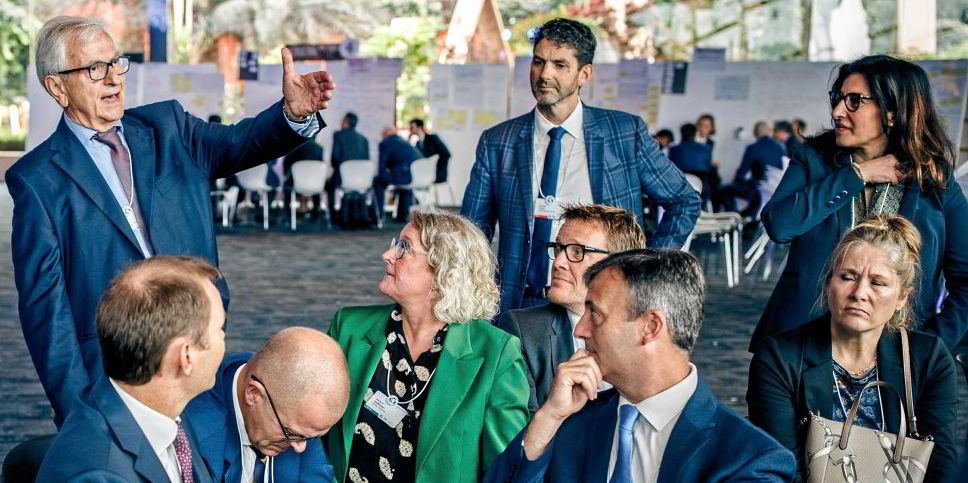
And he hopes the forum can help regulators take quicker action on carbon.
The forum worked during the pandemic to tackle crew change and seafarer vaccine access. Now that those challenges have receded, it aims to continue the focus on shipping’s people.
‘Human element’
Dieleman described the attention on “the human element” in shipping as long overdue.
He said the forum’s All Aboard Alliance on diversity and inclusion is a good next step, and he wants to see more momentum on that initiative.

As many parts of the world suffer labour shortages, shipping needs to apply new technology and to attract talent to do that, and he said there is increasing recognition of the benefits of diversity in achieving it: “We need to tap into a much broader talent base than just maritime experience.”
The summit also aims to tackle the supply chain crisis that swept the world, as well Russia’s invasion of Ukraine, which touched off Europe’s biggest war since 1945.
The forum wants to know whether shipping is facing a more fragmented world, where greater regionalisation replaces globalisation.
“We clearly see that supply chain and geopolitical risks are getting a lot bigger, and it has consequences for shipping,” Dieleman said.
